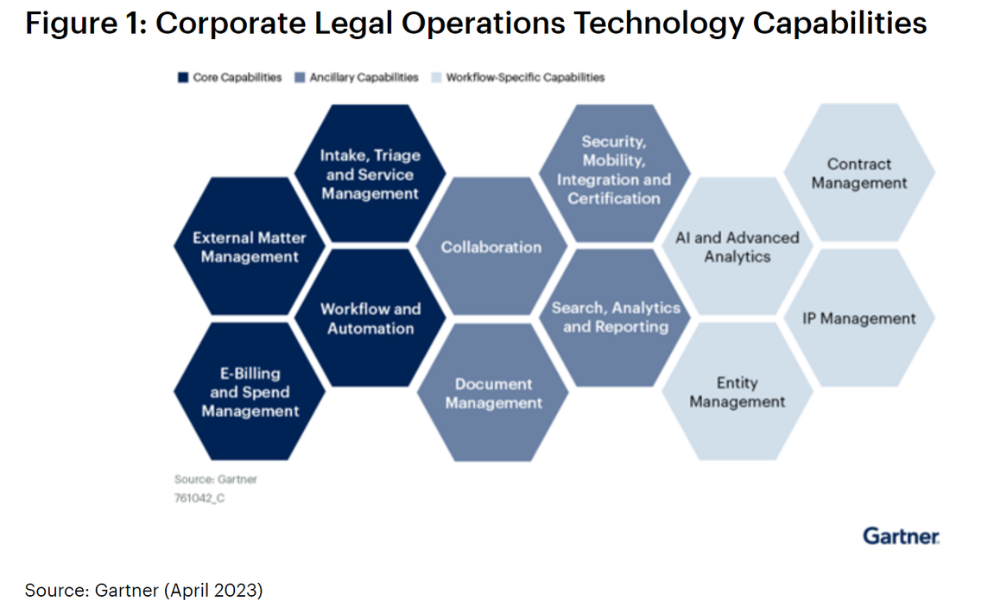
Experts offer guidance on how law firms can pick the best tech solution out there

Global technology research and consulting firm Gartner offers law firms new insight to selecting the best possible legal tech for their business operations amidst what it calls a “highly volatile” legal operations technology market landscape.
“Two major trends are emerging [in the legal tech landscape],” said Garnter’s vice president for research, legal risk and compliance practice, Chris Audet. “First, legal tech buyers are giving more attention to collaboration, workflow/automation, and internal work/service management capabilities. Second, there is increased competition between what have been fairly siloed specialty solutions in the past.”
Increasing workloads and thinly spread resources have legal leaders more and more frequently turning to tech solutions to improve their efficiency. The market has responded to this surge in demand with an uptick in legal tech vendors, with large technology platforms now vying with the more traditional, specialist legal tech solutions to address their needs.
Gartner also found that legal operations tech products sought to provide comprehensive solutions across buyers’ needs despite the heterogeneous nature of legal operations and buyer requirements. Gartner found the following core set of capabilities emerging among legal operations tech offerings, alongside other ancillary and workflow-specific capacities (see Figure 1):

“Although this integration of capabilities offers real promise, and arguably tangible benefits, most legal departments will still need more than a single solution,” said Audet. “As a result, determining which products to invest in, or even which product supports which workflow, has become increasingly difficult for legal and compliance leaders.”
Selecting the right solution from a growing market of brands and capabilities has become a challenge. Established vendors offer more sophisticated solutions, while new players bring in emerging technologies such as AI, assisted analytics, and IP management.
Gartner experts have come up with four key recommendations to help legal organisations navigating legal tech solutions for the right one/s to invest in:
Audet added that it was important for legal organisations to have a plan before selecting technology solutions. This meant understanding a legal department’s requirements as well as how a certain legal tech product would meet them.
“Corporate legal ops technology solutions have the potential to alleviate the burden of increased legal workloads,” said Audet. “However, many departments do not realize the desired results because they don’t adequately prepare for technology adoption.
“No single product can support all operations,” he added. “It may be necessary to invest in more than one vendor to get suitable support for critical workflows.”